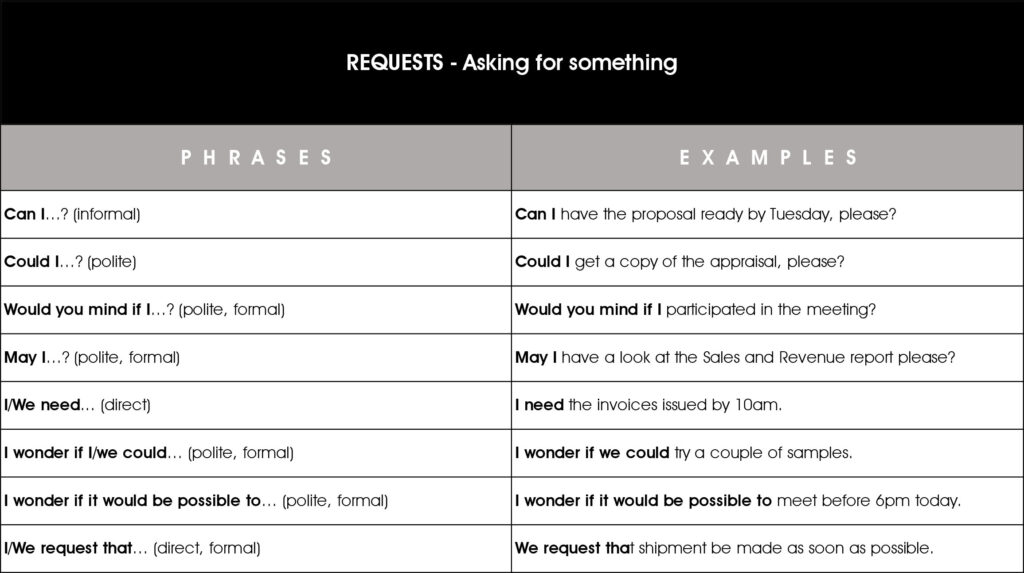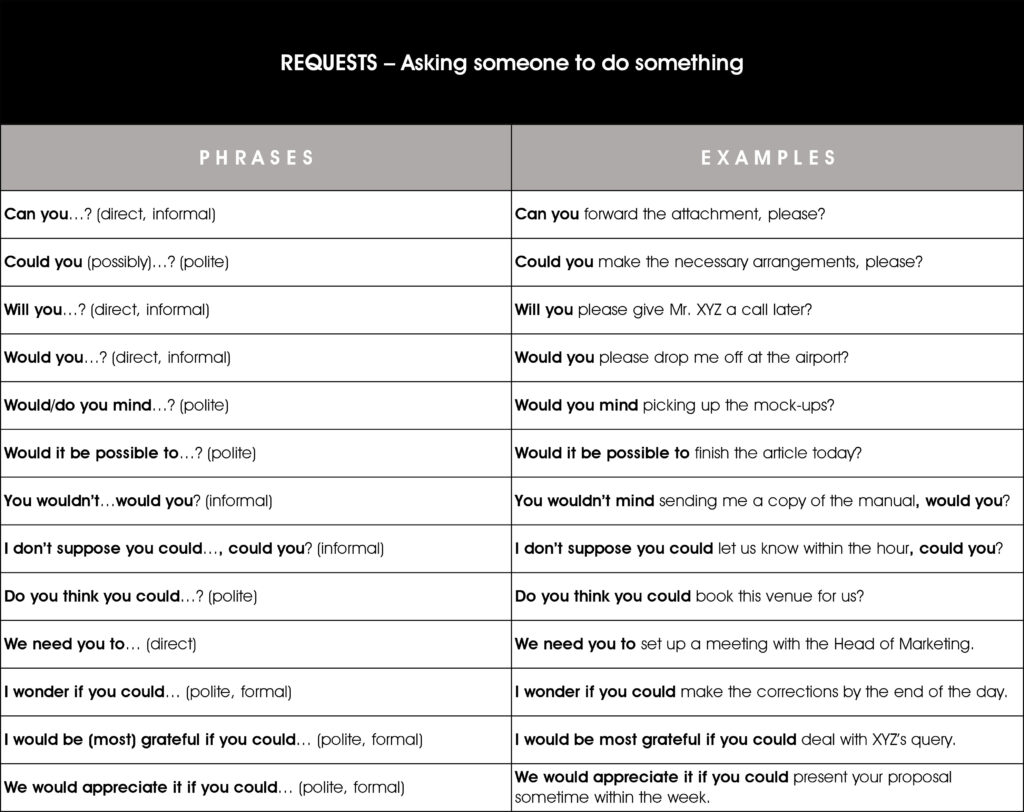
Making requests and offers in English – A How-to-Guide.
Is asking nicely a lost art? Can a well-meant gesture come across as a blunt attack? In my second How-to Guide I focus on phrases you can use to make requests and offers the right way. The English language is full of little niceties and formalities that mustn’t be ignored if you want to sound natural, respectful and professional. Find a variety of useful language and grammar to help you form your own requests and offers correctly and use them appropriately for optimal results. Let’s get started!
Requests and offers in English.
Useful Language.
Choosing the right register when you make a request or offer is extremely important. That is because it can determine the success of your exchange, and the impression made on the recipient of your message. The language register depends on the level of familiarity you have with your audience and the communication context. Opt for the formal register when you write to strangers or for professional purposes as it is impersonal, more polite and precise.
How do you make a request?
When you make requests you ask somebody for something or you ask somebody to do something. Use the following phrases in your letters, emails and daily conversations, as appropriate.
First, look at phrases and expressions used to ask for something.

Now, let’s move on to phrases you can use to ask somebody to do something for you.

How do you make an offer?
Want to offer something to somebody in English? Or maybe you wish to offer to do something for somebody. Try the phrases and expressions below.

English Grammar Corner.
Ok, I know what you’re thinking: “I don’t really need proper grammar”. But let me tell you this, good grammar facilitates comprehension. By being precise you exploit the richness of English, provide your audience with additional information and eliminate ambiguity, all of which are key when you make requests and offers. So, let’s get down to business!
- Modals
FORM: can/could/may/might/will/would + bare infinitive (verb without “to”)
e.g. Could you put me through to the Accounts department, please?
- Imperative
FORM: Bare infinitive OR Don’t + bare infinitive (verb without “to”)
e.g. Please reply by tomorrow.
e.g. Don’t send the memo until later this afternoon.
- Gerund & Infinitive
FORM: Do/would you mind + verb -ing (gerund)
e.g. Do you mind posting this for me?
FORM: Would like + to + verb (infinitive)
e.g. Would you like me to send you additional information?
- Questions tags
FORM: affirmative + auxiliary in negative form OR negative + auxiliary in affirmative form
e.g. You‘ll invite them, won’t you?
e.g. You wouldn’t mind helping with the preparations, would you?
NOTE I don’t suppose you could deliver the goods a bit earlier, could you?
- Conditional type 2
FORM: If + past simple → would + bare infinitive (verb without “to”)
e.g. Would you mind if I joined you?
- Subjunctive
FORM: request / advise / ask / command / demand / desire / insist / order / prefer / propose / recommend / suggest + that + subject + bare infinitive (verb without “to”)
e.g. He requested that we be present at the meeting.
e.g. They proposed that our team undertake the XYZ project.
The right way!
What’s the bottom line? It all comes down to being polite and accurate when you ask somebody to do something for you, both in writing and speech. The same is true when you volunteer your services or demonstrate common courtesy in everyday life or at work. So, yes, adhering to business etiquette and social graces can take you a long way in your communications. Which, in turn, takes me to my next blog topic. Stick around for my upcoming post on the Dos and Don’ts of Small Talk!
Follow my step-by-step instructions to Writing A Professional Email!
https://study.com/academy/lesson/language-registers-definition-uses-examples.html
https://drsaraheaton.wordpress.com/2012/05/22/language-register-and-why-it-matters-or-why-you-cant-write-an-academic-paper-in-gangsta-slang/



